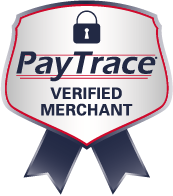Social media has evolved well beyond a merely “social” platform. It has attracted the involvement of all types of businesses, from major software companies to news organizations to local restaurants. Virtually every type of business out there can benefit from building a social media following, and that has changed how we utilize these various networks.
The great value of social media to this point–at least from a commercial perspective–is its functionality as an essentially free platform for self-promotion. Businesses can create and share content that reaches an audience organically, with no monetary investment and as little as a few minutes every day.
But as social media evolves, its functionality will inevitably change for businesses. Some of those big changes are already in the works, and they could have big ramifications for businesses. The main driver of this change is the advent of paid advertising, which has become a huge source of revenue for Facebook and is becoming more prevalent on Twitter. While some businesses are eagerly paying for social advertising, others aren’t sure how much value it brings–especially when they currently get exposure for free. With that in mind, here’s a quick breakdown of how to gain exposure on social media.
Building a Social Presence off Organic Reach
For new companies just getting started, social media offers an ideal opportunity. It provides exposure when companies can’t pay for it, and it helps build a much-needed following among dedicated consumers. When used the right way, social media can also help prove a brand’s authority in their field, giving them credibility they lacked in the early going.
Most businesses on Facebook rely on organic reach to provide a return on their time investment. That value is still alive and well, but it’s declining on certain platforms, most notably Facebook. Now that Facebook has strengthened its revenue streams and proven the value of its social advertising, the network is paving the way for a social future in which those free marketing opportunities become less common for the average business.
Facebook’s Plans to Make Companies Pay
On Facebook, organic reach isn’t what it was even a few years ago. The main reason: Facebook is reducing the audience each piece of social content reaches. At the latest count, Facebook had reduced the organic reach of any one piece of social content to just six percent of the publisher’s following. That means that, if you’re a business with 1,000 followers on your Facebook business profile, each status update will cap out at reaching sixty people.
That’s not nearly the type of exposure Facebook once offered businesses, and it’s a very calculated move. Facebook is essentially weaning small businesses off of organic reach, in hopes of eventually convincing them to purchase paid advertising. The followings your business has built still exist, but you can’t connect with them for free as easily as before. Facebook is leading this charge, and as other social networks develop a solid strategy for driving ad revenues, they will likely want to do the same.
Today’s Strategy: Think Organic, Get Ready to Pay
Businesses should keep an eye on Facebook’s changes to organic reach, and they should be ready to see it go away entirely. For the moment, though, organic reach is still in play. It’s always important to stick to the strategy principles that work on any given day, while understanding that they may change tomorrow.
In other words, keep posting to Facebook and other social networks, and enjoy your organic reach while it lasts. At the same time, don’t be surprised when it goes away. And it’s worth starting to think about what you will do when that free opportunity dissolves. Will paid advertising on Facebook be worth it, or will you want to explore other options?
For help developing and installing a social strategy across multiple social networks, contact DBC Digital today.
Greg Sherwood is CEO of DBC Digital, a marketing agency based in Denver, Colorado. With over 30 years of marketing experience with traditional and inbound (internet) marketing, Greg helps mid-sized businesses get a better return on their marketing dollars.
You can reach Greg at (303) 357-5757 or at dbc@dbcdigital.com

